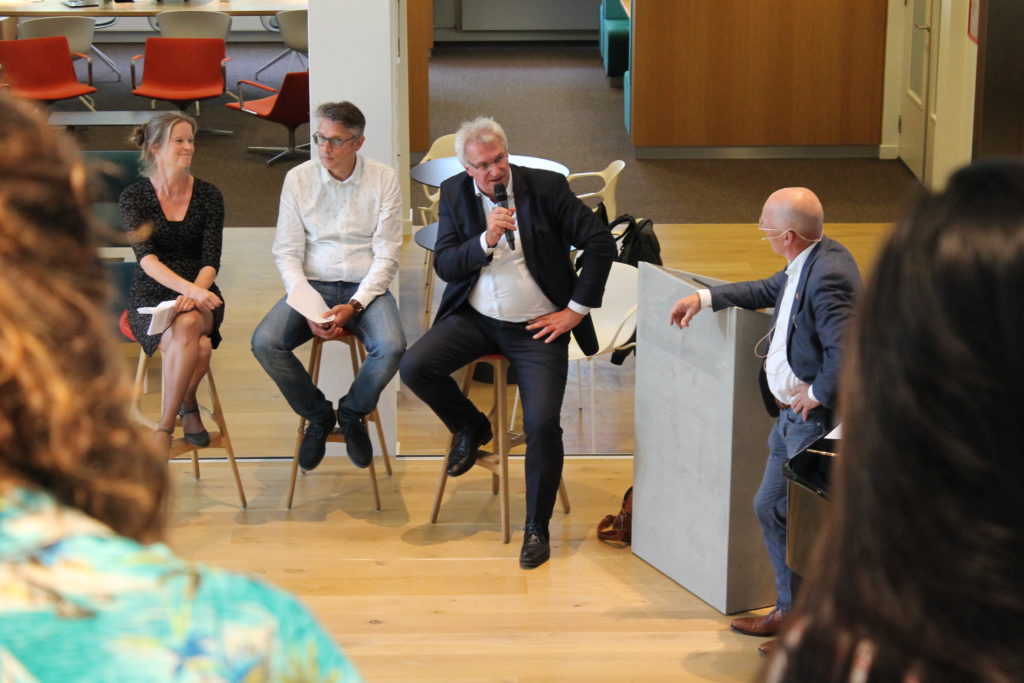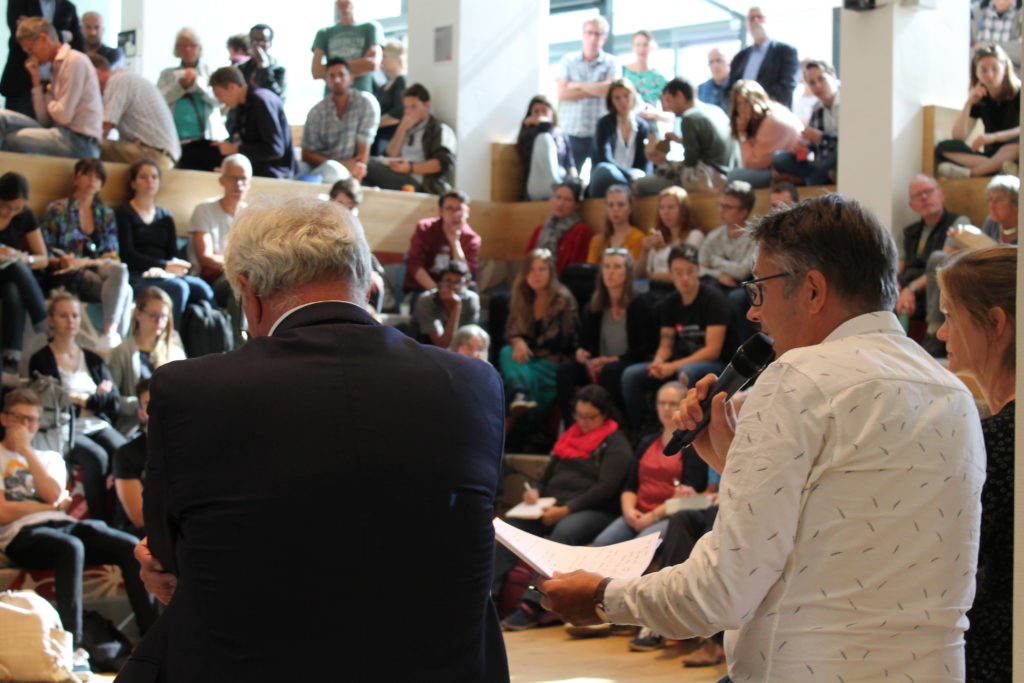© Luuk Zegers
Circular agriculture is a focal point of Minister Carola Schouten’s new agricultural vision, which she presented last week, but the vision is not entirely clear yet. Consequently, Resource, as organiser of the discussion, asked three specialists how they perceive circular agriculture and what implications circular food systems would have in the Netherlands.
Martin Scholten, head of the Animal Sciences Group, stated that circular agriculture breaks with traditional agriculture, which is based on maximising food production at minimal costs. He thinks this new agriculture should serve multiple interests – food, environment, climate and soil quality – and base it all on the capacity of the earth and an efficient use of resources. Anne van Doorn, researcher in the Environmental Sciences Group, largely agreed.
We should learn from the precursors in nature-inclusive agriculture.
Anne van Doorn
Precursors
Both also had similar ideas about the best way for the Netherlands to introduce circular agriculture. According to Van Doorn, we should learn from the precursors in nature-inclusive agriculture. Scholten agreed that the government should research and support innovative farms that already apply forms of circular agriculture. This practice should provide some insight into new forms of collaboration between farmers and stimulating legislation.

© Luuk Zegers
The new approach suggests that many cattle farmers should trade feed and manure with the crop farmers in the area and use residual flows from neighbouring food industry. However, Jan Broeze, who studies food chains at Food & Biobased Research, thinks that local production is not necessarily better for the environment. Sometimes avoiding waste flows requires more energy than recycling them, says Broeze, and the transport of resources and products is sometimes better for the environment than creating local closed cycles. ‘It depends on the food system.’
Fewer animals
Van Doorn still thinks that the Netherlands should minimise the import of cattle feed to create a circular agriculture. By producing the feed locally and selling the manure in the area, a circular agriculture develops with fewer animals.
Scholten had a somewhat different approach. He stated that Dutch farmers should only be allowed to import cattle feed from other food systems that respect the environment, nature and climate. In the meantime, Dutch cattle farmers could use the leaf of sugar beets – which is now treated as waste – much more than they currently do. This addition of responsible cattle feed will limit the Dutch cattle sector. ‘And I hope we will no longer have a manure surplus in the Netherlands.’
In circular production, you switch systems. This therefore requires people from various disciplines working on an overarching joint issue.
Jan Broeze
Climate impact
Broeze thinks this assumption is far too optimistic. ‘As long as the economic system does not change, our food production will remain a race to the bottom, with low prices and food loss. Consumers lack the knowledge about the coming about and price of our food. Perhaps the government should introduce a tax on the CO2 emission of our food, as it currently does with our automotive industry. Let the market pay for the climate impact of agriculture.’

© Luuk Zegers
WUR should also change, but how? Circular agriculture requires complex interdisciplinary research, which means that WUR’s animal, plant and environmental scientists should increase their collaborations, Van Doorn said. ‘Perhaps we should reorganise the sciences groups.’ Broeze agreed. ‘In circular production, you switch systems. This therefore requires people from various disciplines working on an overarching joint issue. But beware: this is not the same as carrying out multidisciplinary research, in which each group follows its own path.’ Scholten puts his hope in students. ‘We need systems thinkers, and we are in luck, as our students are exactly that.’
Guidelines
The audience, consisting of over 150 people – mostly Wageningen students, also had the opportunity to make suggestions regarding the way WUR should become cycle-proof. Broaden the discussion to include other bodies than WUR, was the advice of one student, and involve economists and innovative farmers in the discussion. The most important educational advice was also given by a student: ‘We speak of collaboration, but we have to write separate master’s theses. Change the academic guidelines to allow us to collaborate on a thesis, with several supervisors from various chair groups.’
Additional reading (partly in Dutch):
Lof en kritiek voor minister Schouten om visie kringlooplandbouw
Minister Schouten omarmt kringlooplandbouw
Attend the Resource lunch discussion on circular agriculture!
